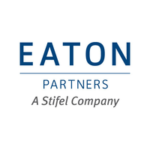Only 13 percent of those surveyed by Eaton Partners are “very confident” in the federal government’s ability to eradicate COVID-19.
 Limited partner (LP) investors are having some major reservations about the federal government’s handling of the COVID-19 pandemic, which is also affecting their investment activity, according to a new survey from global capital placement agent Eaton Partners.
Limited partner (LP) investors are having some major reservations about the federal government’s handling of the COVID-19 pandemic, which is also affecting their investment activity, according to a new survey from global capital placement agent Eaton Partners.
Among the results from the “Eaton Partners LP Pulse Survey” is that “an overwhelming majority of institutional investors say the coronavirus outbreak is already having an impact on their investing activity and many doubt the U.S. government’s ability to effectively combat the crisis,” according to Eaton Partners.
The company questioned 69 LPs about the impacts of COVID-19 upon investment strategies in the private capital market. Eaton is a wholly owned subsidiary of Stifel Financial Corp., and it advises and raises institutional capital for investment managers across alternative strategies such as private equity, private credit, real assets, real estate, and hedge funds/public market in primary and secondary markets, officials say.
The online survey, conducted from March 5 to March 13, 2020, found that:
- Only13 percent of respondents describe themselves as “very confident” in the federal government’s “ability to contain and eradicate coronavirus;
- About half, or 49 percent, say that they are “somewhat confident” in the federal government’s handling of the crisis;
- And 38 percent say that they are “not confident at all” in the U.S. government’s management of the pandemic.
A large majority, 70 percent, “believe interest rate cuts by the U.S. Federal Reserve are not an appropriate remedy to the coronavirus crisis because the problem is biological, not financial, in nature,” according to the survey results.
“Despite the apprehension, 78 percent [of respondents] say they will not reduce or pull capital out of specific geographic regions because of coronavirus,” according to the survey.
Yet the profound impacts of the pandemic on the economy and society are beginning to impact investment activity.
A majority, or 70 percent, is reporting that “the coronavirus outbreak is having an impact on their investment activity and/or planning for 2020,” according to the survey.
In fact, a combination of factors — the Coronavirus, 29 percent, market valuations, 29 percent, and a potential U.S. recession, 33 percent — “will have the most significant impact on their near-term investment strategy,” according to the survey results.
In addition, on a personal level, 75 percent of respondents, “admit they’ve made changes to their business activity as coronavirus fears intensify, including less travel and more phone calls and videoconferencing,” the survey finds.
“While there are many unknowns, our recent interactions with global institutional investors regarding the fluid social, business, and macro-economic environment, have yielded an interesting response,” says Peter Martenson, a partner at Eaton Partners, in a prepared statement.
“There’s a general feeling that private equity could be a well-positioned, steady-hand investor during the recent coronavirus-induced volatility. In fact, our survey found that 52 percent of investors believe PE [private equity] is the most appealing alternative asset class going forward, on the heels of lower interest rates, falling valuations, and more clarity in the presidential race,” Martenson says.
However, in the volatile weeks since the survey was conducted, the economic outlook for private equity has quickly become very complicated.
 “In the near term, GPs [general partners] will be mostly focused on keeping portfolio companies afloat amidst the economic tumult created by the spread of COVID-19,” according to a recent analysts’ guidance, “COVID-19’s Influence on the US PE Market: How GPs and LPs are dealing with the recent economic crisis,” from PitchBook Data, a data, research and technology company that is part of Morningstar.
“In the near term, GPs [general partners] will be mostly focused on keeping portfolio companies afloat amidst the economic tumult created by the spread of COVID-19,” according to a recent analysts’ guidance, “COVID-19’s Influence on the US PE Market: How GPs and LPs are dealing with the recent economic crisis,” from PitchBook Data, a data, research and technology company that is part of Morningstar.
“As more is understood about the full effects of this pandemic, we expect GPs to pursue PIPE [private investment in public equity] deals, growth equity transactions, and carveouts and divestitures in greater numbers,” according to PitchBook.
“GPs are likely to hold portfolio companies during the pandemic rather than sell at deeply discounted prices. In past economic crises, such as the global financial crisis (GFC), PE firms chose to hold and median time to exit leapt by several years. We believe GPs will utilize GP-led restructurings to keep portfolio companies under their ownership, even if it is near the end of a fund’s life,” according to PitchBook.
As for PE fundraising, it “has already slowed markedly and looks to continue this trend for another two quarters. Multibillion-dollar funds are expected to find continued success with an established LP base. However, nascent managers, spinouts and new strategies are unlikely to find success because of LPs’ current due diligence limitations,” according to PitchBook.
On the presidential campaign front, the Eaton Partners survey found that nearly two-thirds of the survey respondents, or 64 percent, say that they “believe President Trump will be re-elected, with 33 percent predicting a Joe Biden win and just 3 percent anticipating a Sanders presidency.”
Oddly enough, fears over anti-private equity rhetoric on the campaign trail are on the wane as “only 12 percent of investors are very concerned about anti-private equity rhetoric on the campaign trail,” according to the Eaton Partners survey.
A financial services holding company, Stifel Financial Corp. is based in St. Louis, Missouri, and conducts banking, securities, and financial services businesses via wholly owned subsidiaries.
Need a Reprint?